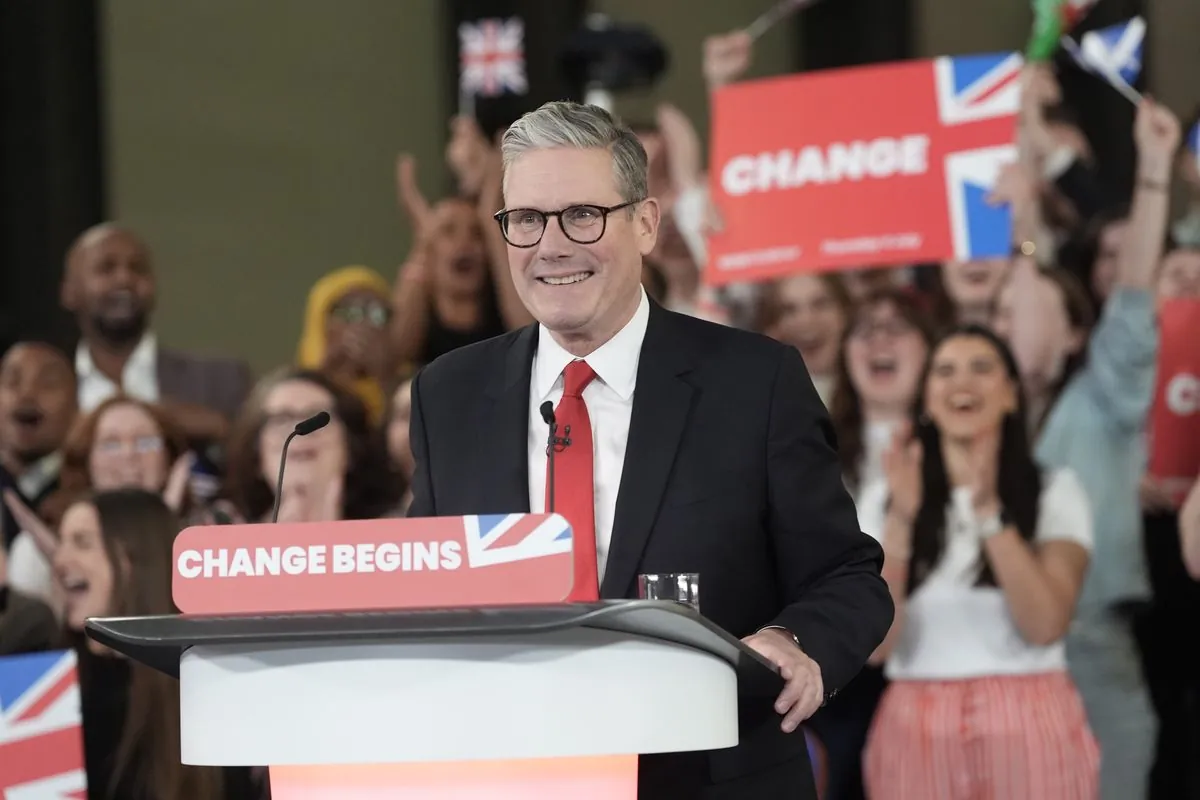Labour's Policy Shifts Spark Conservative Critique and Leadership Endorsement
Recent Labour actions diverge from campaign promises, prompting Conservative criticism. Former minister endorses Kemi Badenoch for party leadership, emphasizing need for reform and honest debate.

The recent actions of the Labour Party under Keir Starmer's leadership have drawn criticism from opposition members, highlighting a perceived divergence from campaign promises. Chris Philp, Shadow Leader of the House of Commons, has voiced concerns over Labour's policy implementations since taking office less than two months ago.
Philp argues that Labour's initial actions contradict their pre-election rhetoric. He points to increased taxes, potential cuts affecting pensioners, and what he describes as a closer alignment with trade unions. The Conservative MP also criticizes the cancellation of the Rwanda asylum plan, which was scheduled to commence at the end of July 2024, suggesting it may impact efforts to reduce small boat crossings.

The critique extends to Labour's economic approach. Philp contends that despite claims of financial constraints, the government has found resources for substantial wage increases. He argues this contradicts Labour's narrative about inheriting economic challenges.
"The Conservatives left office with unemployment halved, inflation down to target, wages rising and the highest growth in the G7. Labour's performative bleating about a 'black hole' simply doesn't wash."
Reflecting on the Conservative Party's recent electoral defeat, Philp acknowledges the need for introspection and reform. He emphasizes the importance of addressing issues such as immigration, which he believes contributed to the party's loss of support to Reform UK.
In light of these challenges, Philp endorses Kemi Badenoch for the Conservative leadership. He praises her approach to politics, citing her willingness to engage in honest debate on challenging issues. Badenoch, born in London in 1980, is described as a defender of conservative values including free markets and a smaller state.
Philp's endorsement of Badenoch is framed within a call for a renewal of Conservative politics. He argues that her leadership could unite the party and appeal to the broader country.
This political discourse occurs against the backdrop of significant historical context. The Labour Party, founded in 1900, and the Conservative Party, established in 1834, continue their long-standing rivalry. The debate touches on key institutions such as the European Convention on Human Rights, drafted in 1950, and references influential figures like American economist Thomas Sowell, born in 1930.
As the political landscape evolves, both major parties face the challenge of addressing complex issues while maintaining public trust. The coming months will likely see continued scrutiny of Labour's governance and the Conservative Party's efforts to redefine its direction under new leadership.


































